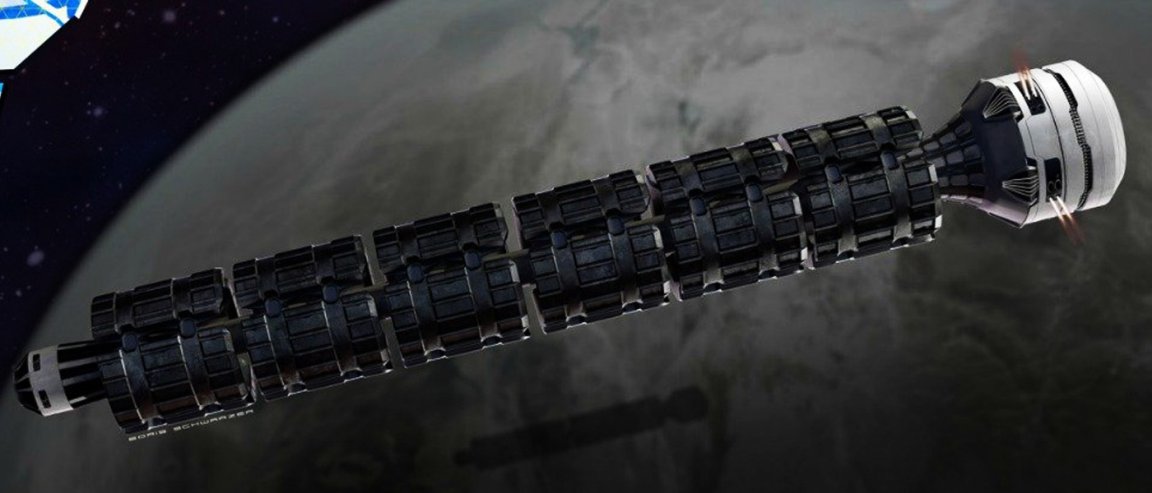
Space Train
It takes between three to six months for a probe to reach Mars from Earth. A new concept space train called Solar Express is challenging that time frame: it would, hypothetically, be able to transport people and cargo from earth to Mars in less than two days.
Imaginactive founder, Charles Bombardier, and his team aim to create Solar Express in a way were it could travel at around 1% the speed of light, which is 3,000 km (1,864 miles) per second.
The concept started out with identifying what makes space travel expensive and inefficient. “In space, the most expensive portions of travel are the acceleration and deceleration phases. The energy required for those portions is tremendous, especially for something as heavy as a space train. In addition, if you were to start hauling cargo, it would become very expensive,” he said on their website.

Solar Express plans to circumvent these inconveniences by eliminating the acceleration and deceleration phase—it will never stop once it’s up there. Instead, it will move back and forth in space as smaller capsules containing cargo and passengers dock onto it while still in motion.
Bombardier says: “once the train reached its cruising speed, its energy consumption would be minimal. That’s the idea behind the Solar Express concept. It would never stop; instead, space wagons/capsules would rendezvous with it.” The space train will use the momentum it gained from its initial launch, and rely partially on gravity thereafter, reducing the need to use fuel. It would, hypothetically, also be able to harness solar energy and pick up water from celestial bodies, which will be used by those on board and well as being converted into fuel.
Ambition is the New Normal
Seeing as this is just a concept, there are a lot of details that would still need to be figured out. Imaginactive, being a nonprofit organization dedicated to inspiring innovative, out-of-the-box concepts, encourages and welcomes innovators to think up crazy ideas—and then figure out details after. In fact, they are continuously on the lookout for more inventors and proposals are open to everyone.
To be clear, this is just an ambitious concept. The science and development to make this possible are nowhere near the levels of certainty that would be required to actually get this concept off the ground.
While the concept seems like a moonshot, at the rate space technology is developing, can we really, definitively, say it’s impossible? Besides, we’ve regularly seen science-fiction turn into reality.